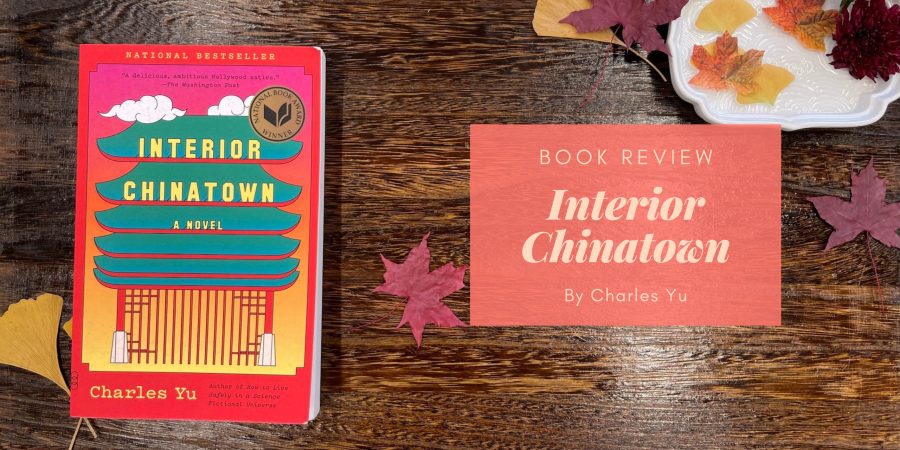My boyfriend got this book for me for my birthday, which means that I got to read something I probably wouldn’t have picked up otherwise. While this was no Hamnet, it did provide a lot of food for thought.
Interior Chinatown shows what happens when you try to define your identity through its relationship with other races. Willis, our main character, acts as a generic Asian man on a TV show called “Black and White”. His dream in life is to become Kung Fu Guy, which is supposed to be the pinnacle of success for Asians in Hollywood.
While I understand what this book was trying to do and what its message was (not hard since the last section, a courtroom scene, basically laid everything out clear), I found the execution to be a bit lacking. The book is written partially in a script format, to show the exterior version of themselves and the interior one, but honestly, everything felt very same-y. The stars of Black and White seem to ad-lib their lines and I didn’t know if this police procedural is supposed to be a comedy like Brooklyn-99 or played straight like Bones.
But perhaps more confusingly, the “interior Chinatown” part felt very much like the exterior. It almost felt as though the stereotypes being played out on the screen were what was lived out off-stage. What makes someone Chinese-American? Given that Willis seems to be a second-generation Chinese (his dad comes from Taiwan if I understood things correctly), I would have expected more reference to Chinese culture beyond Kung Fu and Cheongsams. It felt quite shallow to me – I did wonder if the author intended to show that Chinese-American culture is that shallow (perhaps due to them being in America and trying to assimilate while not being completely American, thus making it hard to balance both trying to retain your cultural heritage and taking in a new culture?) but on the other hand, I thought the book was trying to say that Chinese-Americans are more than the stereotypes that we see, which makes a shallow portrayal of the interior life of Chinese-Americans counterproductive.
[SPOILERS HERE] The plot was also a little confusing. I understood that there’s a police show, and there’s something that happens off-stage (such as his romance), but the sudden turn to a courtroom scene didn’t make a lot of sense. I thought that Willis’ character had died, so why was he suddenly on trial? It felt like the courtroom scene was there for the author to put forth his views, rather than for the sake of characters or plot.
Speaking of the author’s views, another thing that made me a little annoyed was the argument used in the courtroom scene. The lawyer argued that people of Chinese heritage have been around as far back as the gold rush, but Willis himself is not from one of those families? In Singapore, I can see cultural clashes between Chinese who moved here pre-independence and Chinese who moved here in the last few years, so I wouldn’t try to lump the two groups together as though they would have the same concerns and struggles. So the author doing that in the book was something that I didn’t quite like because it erases the plurality of the Chinese diaspora experience.
Overall, this was an interesting read if you take it as sharing one of the many stories that the Chinese diaspora hold. While I appreciate that the author tried something new, I wasn’t a huge fan of how the book turned out, mostly because I’m not the kind of reader that craves inventiveness in form. Still, those who are looking to understand a segment of the Chinese-American diaspora would probably find this to be illuminating.

this sounds like a fantastic concept with a lackluster execution, such a pity but a lovely gift nontheless!
Yes, I really had higher hopes for this book! Someone mentioned that they had a similar experience because they are Chinese diaspora; perhaps we are too close to the topic!
Did you skip a part when you were reading?
Willis “dies” when he was acting out his part in the movie black and white. Afterwards he gets in a relationship with Karen and they eventually separate since Willis was too absorbed into his career. Eventually he steals a cop car to visit Karen and his daughter and purposely allows himself to get caught by the police (the car has a tracker). THEN it switches to the courtroom.
Also for interior Chinatown it’s suppose to be a different universe, similar but not the same, that’s why everyone is heavily portrayed as their stereotype and has a “role” to play.
I read the whole book but honestly the acting vs real life parts blurred together far too much and confused me (which is why I knew he died and I knew about Karen but never made the connection between that and the courtroom – so the courtroom is a real life thing?). Thanks for the explanation!